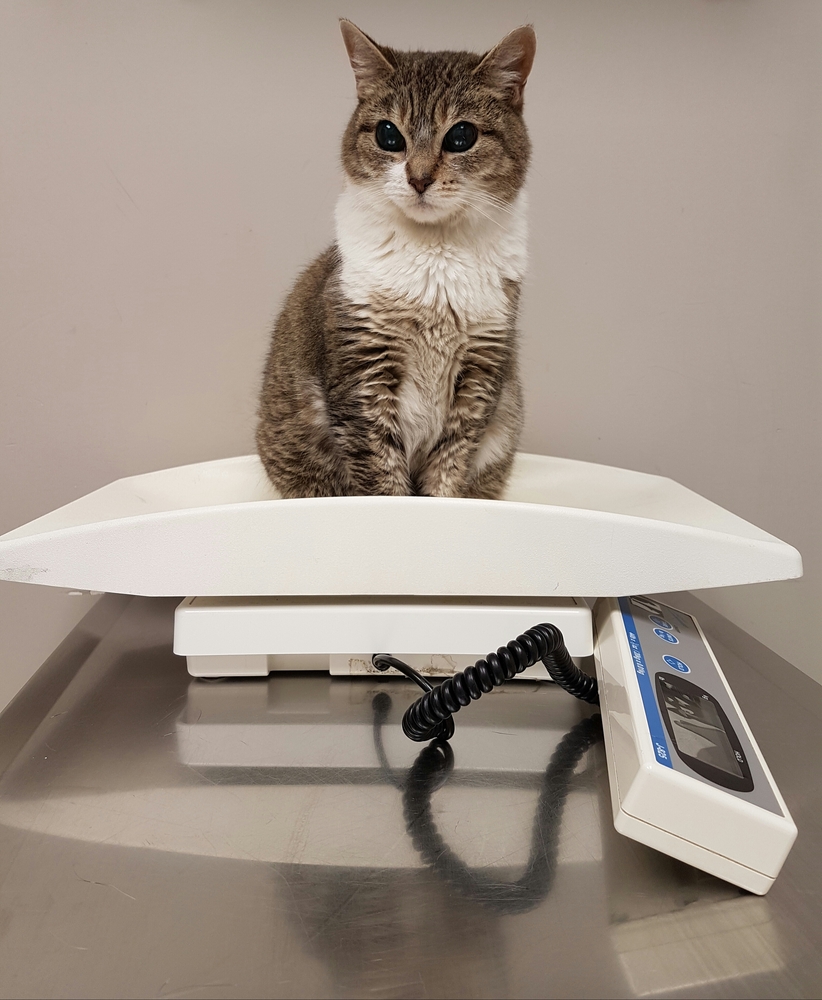- Home
- The Vape Mall Blog
- An In-Depth Look into CBD’s Potential Role of Managing Your Pet’s Weight and Appetite
An In-Depth Look into CBD’s Potential Role of Managing Your Pet’s Weight and Appetite
Posted by on

One of the most challenging things as a pet owner is knowing when something is wrong with our precious companions. Our beloved cats and dogs can’t simply communicate to us when they’re not feeling well or when they’re experiencing pain. And, if they are unwell in some way or another, they can’t describe to us the symptoms or tell us why they may be feeling the way that they do.
This is why it’s so important as pet owners to be vigilant and observant. If our pet starts showing any of the known signs of distress, whether it be physical or psychological, we must act. And a big indicator of a pet’s overall wellbeing is their weight as well as their appetite.
Cats and dogs may experience weight changes and changes in appetite when something is amiss, like when they have an illness or they’re experiencing stress. Furthermore, these changes can indicate that we are feeding them improperly and must adjust better their overall wellbeing.
One way in which more and more pet owners are helping their furry friends maintain a healthy weight and appetite is by putting them on a CBD regimen. Now, if you don’t recognize the way in which cannabinoids function in the body of all mammals, this might sound surprising to you. But, as it turns out, CBD and other cannabinoids may regulate various bodily functions that play a role in weight, appetite, and general wellbeing.
Your Pet’s Weight and Appetite
So, why is it so important to be on top of both your pet’s weight and their appetite? Well, their overall health depends on it. We all know that being overweight puts us at risk of serious diseases including heart disease, diabetes, and high blood pressure. And we know that being underweight can lead to nutritional deficiencies, and that low-calorie intake can cause major health issues. And a low appetite can lead to being dangerously underweight.
Obviously, these facts apply to our pets as much as they apply to us. Also, we can’t explain to our pets that they need to eat more, or that their weight is becoming a cause for concern. This means that we have to make decisions for them to improve their weight and appetite.
Being Overweight
The most common reason for an overweight pet is that we are feeding them in a manner that’s not appropriate for them. We love spoiling our pets, and some of us do this by indulging in their desire to eat more than their bodies require. Cats and dogs have extremely strong survival instincts, and this means that they tend to be opportunistic eaters, which means that they will eat whatever is given to them, even if they are not hungry. Feeding them more than they need will lead to being overweight.
Not only is an overweight pet likely to develop a host of health problems, but it conflicts with their biological instincts and values. Pets derive pleasure from being physically active, as their abilities to run and catch prey increase their quality of life. Being overweight can lead to lethargy, which can undermine their sense of fulfillment.
Ways in which we can cause our pet to become overweight include giving them portions that are larger than necessary, allowing them to free feed and giving them high-calorie foods that are not intended for their bodies, such as the foods that we make for ourselves. Our pets generally don’t process human foods well, such as fatty foods, gluten and sugar. These foods can cause them to gain weight rapidly, while harming their kidneys, liver, bladder, and intestines.
It’s worth noting that in some cases, a pet can be overweight due to an underlying health issue. There are various health conditions and medications that can cause a pet to gain an abnormal amount of weight despite maintaining a healthy diet.
Being Underweight
An underweight pet can be just as unhealthy as an underweight pet. The most common cause for an underweight pet is, unsurprisingly, a low-calorie diet. We must make sure that we are feeding our pets enough on a daily basis, because becoming underweight can be extremely dangerous.
Besides not eating enough, common causes for being underweight include parasites, hyperthyroidism, improper feeding, certain medications and digestive conditions that cause excessive diarrhea or vomiting.
Having a Low Appetite
A pet may maintain a relatively healthy weight but show signs of a poor appetite. This must be taken seriously because a low appetite can lead to becoming underweight, and it can also be a sign that something is truly wrong with your pet. There are many reasons why a pet may lose their appetite. Stress is a common cause, and we tend to underestimate just how many circumstances can cause our pets to become stressed. Digestive discomfort and chronic pain can also lead to a low appetite, as well as certain medications and underlying illnesses. Sometimes, a loss of appetite can be caused by a serious problem that is potentially dangerous.
When to Visit a Veterinarian
So, when is it necessary to see a veterinarian for your pet’s weight or appetite? Well, as soon as you notice any changes in weight, it’s good to schedule an appointment. A pet who maintains the same diet daily should not have any noticeable deviations in weight, so this may be a sign that something is wrong.
And, if your pet goes more than a day without eating, this is also a good time to take them to see a vet. Reasons for having no appetite range from harmless to incredibly serious, and your pet’s loss of appetite can indicate a major issue that needs immediate attention.
It’s up to you to pay attention to your pet’s food intake daily and stay on top of their weight. This way, when something changes, you’ll know right away and be able to make the best decision for their wellbeing.
How CBD May Play a Role in Weight and Appetite Management
CBD is being more and more commonly used by pet owners, and one reason why has to do with weight and appetite. Many of us wanna avoid giving our pets heavy medications that may cause side effects, especially since our pets may not be able to tell us that they are experiencing side effects. CBD is natural, plant-based and holistic, making it appealing to pet owners and vets alike.
CBD is cannabidiol, which is the leading cannabinoid in the hemp plant. Cannabinoids are a class of compounds that work with the endocannabinoid system, which can be found in all mammals. The endocannabinoid system is a regulatory system that manages homeostasis throughout the body through regulatory actions pertaining to bodily processes like mood, pain levels, appetite and digestive function. Cannabinoids like CBD bind to cannabinoid receptors that make up the endocannabinoid system, thus stimulating regulation in adjacent bodily processes.
Studies have been done on CBD’s effects on both weight and appetite.
Study #1: Demonstrated the potential that cannabidiol has to regulate appetite specifically.
Study #2: Found that CBD may transform white adipose tissue into brown adipose tissue, a process that seems to play a major role in avoiding obesity.
Study #3: Shown that CBD may regulate both pain and stress levels, two factors that can cause changes in appetite and eating habits.
How to Give Your Pet CBD
If you wish to give your pet CBD, it’s crucial that you speak to a vet. It’s equally crucial that you choose a CBD product formulated for pets.
There are a few delivery methods out there and choosing the right one can make a big difference. CBD edibles in the form of treats are a great choice for overall weight and appetite, as are tinctures. If your pet is losing their appetite due to pain, you may wish to use a pet-friendly topical that can be applied directly to the area.
Your Pet’s Weight and Appetite Can Impact Their Overall Health
So, being vigilant is necessary as a pet owner. If you’re looking try a natural and holistic approach to managing their weight, talk to your veterinarian about trying CBD as part of their daily routine.
 Loading... Please wait...
Loading... Please wait...



















